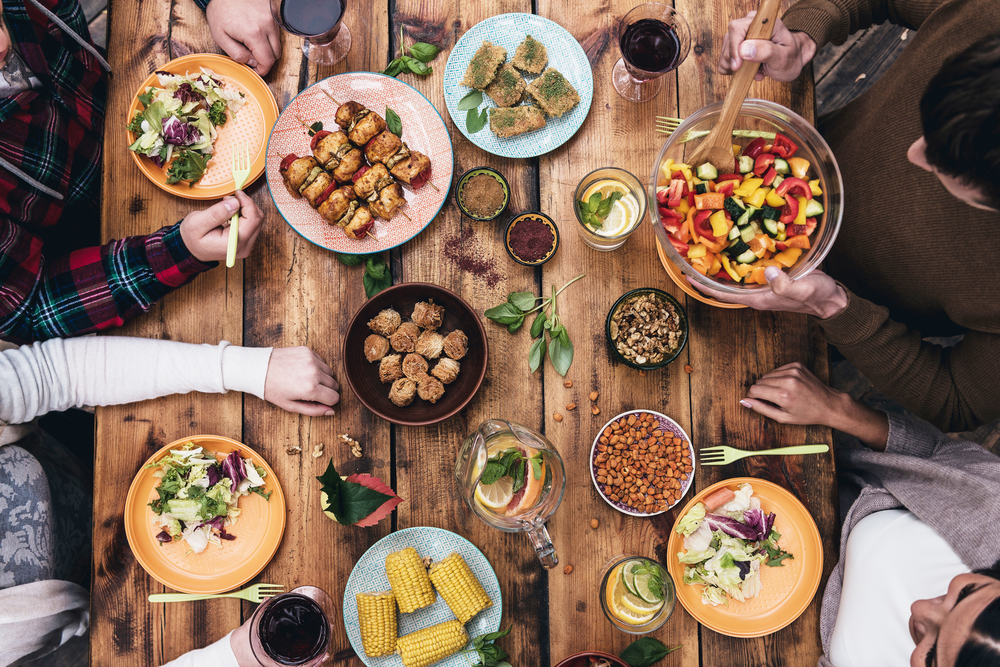When it comes to healthy eating, it feels like we are either doing the right thing or breaking all the rules. Foods are either “good” or “bad.” When I first became interested in nutrition, I was dedicated to eating only the “good” foods and following all the rules and regulations I had set up for myself.
After living this way for some time, I came to the realization that all this healthy eating was making me unhappy. I felt like I had lost my freedom.
At our core, we humans strive to maintain our freedom as much as possible. Therefore, this type of attitude about eating is almost always destined for failure and possibly quite a bit of suffering.
Right around the time I started graduate school for nutrition, I decided I had had enough. I wanted to discover a way of eating and living where I could enjoy delicious foods that were also healthy, without all the suffering and deprivation.
Over the years practicing as a nutritionist I have encountered too many people (especially women) that are willing to forgo happiness and personal freedom in order to follow a meticulously prescribed diet. There is always the latest craze that will help them lose weight or gain health.
However, I have seen that in the process of blindly following dietary dogma, we are forgetting how to nourish our bodies and our souls with foods that are nutritious and delicious. As I began exploring the revolutionary idea of experiencing food freedom – eating foods that you love as you move closer to your health goals – I found that it isn’t as hard as you would think.
When we make decisions about what to eat, we are being tugged by different forces. Our “lower brain,” the amygdala, provides our instinctual drive to eat whatever it takes to survive. This part of our brain is also responsible for driving habits.
Meanwhile, our “higher brain,” or the prefrontal cortex, is pushing us to plan for the future and achieve our higher goals. The feeling of deprivation comes from a disparity between what our lower brain and our base emotions long for and what our higher brain knows is good for us in the long run.
Strategic eating involves the fine art of aligning your habits with your best intentions by slowly building good habits. If you have a pile of healthy habits, your lower brain will push you to engage in those habits. And, of course, your higher brain wants you to engage in them, as well.
Then it no longer feels like a tug on your freedom; it becomes second nature. You begin to even crave indulging in those good habits. This is where the magic lies.
There are four major tools you can use to start building lifelong habits for optimal health without causing major suffering.
1) Set up your environment for success.
- If you have trouble snacking at night, clean out that cupboard in the morning when your willpower is highest.
- If you tend to buy too many sweets, go shopping in the morning after a good meal when your willpower is high and your belly is full.
- If you have trouble getting to the gym, buy some weights for your home and find a good YouTube video, or bring your gym clothes and sneakers to your office.
2) Plan, plan, plan, and then plan some more.
- Set your goals.
- Make an action plan. What are the specific habits that will propel you toward your goals?
- Keep in mind that building a habit slowly is the least painful way to change. If you want to get more sleep, start with going to bed fifteen minutes earlier each night for a month. Give yourself plenty of time to develop that habit. Making tiny, almost imperceptible changes works like a charm. You still feel like you have your freedom, but lo and behold, after a few months, things are different.
3) Allow for indulgences.
- Remind yourself that it’s okay to indulge in old habits from time to time. Otherwise, you might turn into a robot or go off the deep end and binge, stay up all night, or just stop exercising altogether.
- When you indulge, do so with intention and enjoy every moment. Give your indulgent moments the attention they deserve.
4) Be self-aware.
- As you change, pay attention to how you feel. Does your body feel better? When you sleep and eat well, are you more productive? What thoughts are passing through your head right before you eat that pizza at 2:00 AM? Is it all you thought it would be? Do you want to do it again?
Over time, I have found that living a healthy life is not so hard, because I have developed a pile of healthy habits. My animal brain wants me to go to the gym, to eat lots of vegetables, to get in bed on time, and so on. And of course, my higher brain, which is all for future planning and optimizing my chances of living a long life, agrees.
Strategic eating is an art. And it is a practice that, over time, will give you incredible confidence in your ability to make the right choices for your body and maintain your sense of freedom.
Originally published on Ellevate.
Follow us here and subscribe here for all the latest news on how you can keep Thriving.
Stay up to date or catch-up on all our podcasts with Arianna Huffington here.


